These early settlers in America lived under conditions far different from those prevailing in the world's richest and most prosperous nation today. Life was one of hardship for most people and peril for many.
America was overwhelmingly a wilderness in colonial days, with only a few main cities such as Philadelphia, New York, Boston and Charleston. In 1774, Philadelphia was the largest with nearly 40,000 people. The total population in the 13 Colonies was about 2.5 million, of whom more than one fifth were Negro slaves. European settlements were only small dots on the map of North America, dominated, except for anarrow strip along the Atlantic shore, by untamed forests, prairies and mountains.
The vast bulk of what is now the USA was the nearly exclusive domain of native Indians, whose long and losing struggle to retain their lands still was decades away from a climax.
In the mid 18th century, incoming immigrants could scarcely find New York or Boston even when their tiny ships were only a mile or two offshore. To such men and women, the coastline from that distance appeared to be nothing but woodsland, and the scent of the forest oftentimes was detected before land was sighted.
Children in the 18th century lived very differently from the relatively free-wheeling youth of 1976. A book on colonial etiquette advised youngsters: "Never sit down at the table till asked - Ask for nothing: tarry till it be offered thee - Sing not, hum not, wiggle not. Spit nowhere in the room but in the corner. When any speak to thee, stand up."
Class distinction, imported from Europe, soon began to break down in some of the towns, although the old aristocracy hung on as best it could. In New England, a wealthy landowner was formally addressed as "esquire", followed on the social scale by "master", a term frequently applied to clergymen. About 1 in 14 was a professional man called "mister". A yoeman farmer was addressed as "goodman".
The mass of the people were independent farmers, many of whom had cleared the virgin forest and were raising crops and herds that provided their families with comfortable livings, but few frills. The early Bizzells in America appear to have fallen within this class. These families often had one or two-room cottages with dirt floors. Rude windows were made of paper coated with lard. A small poster, printed in England in 1622, illustrates the homely origins of the affluent US society. The poster advised settlers what things they needed "for their better suport at thier first landing in Virginia". On the brief list were such items as: 3 shirts, 3 paire of Irish stockings, 8 bushels of meale, 1 gallon of oyle, 1 musket, 20 pounds of powder, 60 pounds of shot or led, 2 broad axes, 2 hammers. The complete list of "household implements: suggested for the well-equiped Amerian housewife of 1622 was "1 iron pot, 1 kettle, 1 large frying pan, 1 gridiron, 2 skillets, 1 spit, platters, dishes, spoones of wood". Despite regional diffferences between the English-educated Southern Gentry and the austere New England Puritans, important links started to develop between the two ends of the narrow country. One important connection was a main roadway, built before the Revolutionary War, from Boston to Charleston, via New York and Philadelphia, with ferry boat service across wide waterways. Most freight and passengers, however, moved by ship on the long routes. In 1774, it took about six days to travel from New York to Boston, but improved stage coach service cut this to only four days by 1775. Today, by jet, the journey usually takes 45 minutes. On colonial stage coach runs, passengers ordinarily stayed overnight at crowded inns along the roadway. Four or five strangers, both men and women, frequently were bunched together in one room.
Many early American records were lost because of conditions along the frontier. Some people were illiterate and could not spell their name. Record keepers resorted to phonetic spelling and were more concerned with artistic penmanship than accuracy. Court was held in people's homes and records were hauled over great distances in horse-carts, in all kinds of weather. Where courthouses existed, they were usually flammable and many were burned by indicted persons seeking to destroy evidence against them. Other losses occurred during the civil War, 1861-65, when Union forces deliberately burned many Southern Courthouses.
In Hertford County, NC, which is important to the Bizzell history, we learned that a person was caught with some stolen meat from his neighbor's smokehouse, and the evidence was taken to the courthouse to await trail. Mysteriously, the courthouse caught fire during the middle of the night and burned to the ground, along with the evidence and all the county records.
Most colonies had one or more newspapers which carried lively debate about current issues. Arguments over religion, politics, fashions and personal affairs abounded in print as well as in ale houses and town meetings. London was still the final authority in legal issues, but many matters were resolved by the locally elected colonial legislatures.
At the time of the American Revolution in 1776, it was apparent that America had evolved into something quite different from the old European model, despite Britain's best efforts to hold back the tide.
Late in the 19th century, there was a Bizzell Hamlet, or Community, in Wayne Co., NC which had its own post office called Bizzell. In 1896, it had a population of 20 and was situated in what had been Captain Jesse Bizzell's Census and Tax District in 1800. The post office was later abolished and the hamlet absorbed into the larger Grantham Community some 3 miles south. The location of Bizzell Post Office is noted on old post route maps.
skip to main |
skip to sidebar
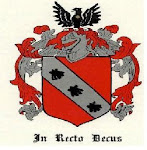
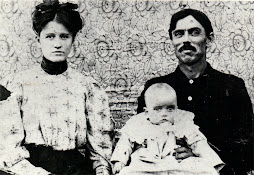
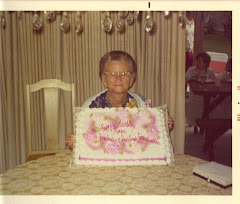
Dec 1973
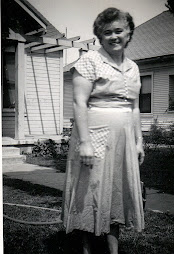
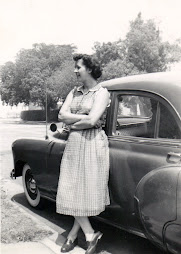
The origin of the Bizel-Bizzell family is placed in Savoie Province, present-day Eastern France. Family members are traced from sixteenth century Savoie to Ireland, England, America, Australia, south Africa and Canada. Family members living in these countries in 1976 contributed geneological data.
Time, like an ever rolling stream,
Bers all its sons
They fly forgotten, as a dream
Fades at the break of day.
--Isaac Watts 1674-1748
Time, like an ever rolling stream,
Bers all its sons
They fly forgotten, as a dream
Fades at the break of day.
--Isaac Watts 1674-1748
Bizzell Family Crest
In Recto Decus
The Bizzell Coat of Arms with the Family Motto "In Recto Decus" which means "Honor in Doing Right." A Coat of Arms is not issued to a Family Name, it is issued to an individual, in his last name. This coat of arms was issued to Thomas Bizzell (Byselle) by the official College of Arms, Herald of Arms, in London England sometime in the early 1600's. Every Bizzell, through male heirs, who can prove they directly descend from Thomas Bizzell has a "right to arms by inheritance" and may claim it's use.
johnnie (bradley) bizzell, john shelby bizzell and thelma lee ( bizzell ) taylor ( baby )
Johnnie (Bradley) Bizzell
Dec 1973
Thelma Lee (Bizzell) Taylor
Elaine (Bizzell) Vick
Followers
Blog Archive
-
▼
2010
(18)
-
▼
March
(18)
- FORWARD
- Why This book was written
- Early People, Places, and Times
- An Atlantic Voyage in the Seventeenth Century
- Living Conditions in Colonial America
- Three Bizzell Brothers
- American Bizzells, Bizel, Bizell, Bizzel, Bizzle, ...
- American Bizzells 1701-1750
- John Stanley Bizzell
- Thomas Bizzell
- John Bizzell
- Thomas Enos Bizzell
- Enos Bizzell
- David Bizzell
- David Everett Bizzell
- John Everett Bizzell ( mom's grandfather)
- John Shelby Bizzell
- Thelma Lee Bizzell Taylor
-
▼
March
(18)
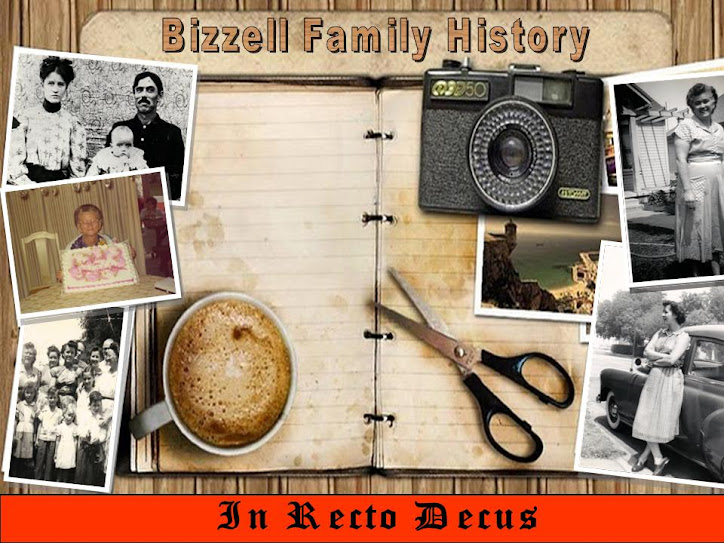


No comments:
Post a Comment